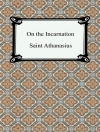In troubled times of heightened global tensions and conflict, (un)Common Sounds: Songs of Peace and Reconciliation among Muslims and Christians explores the contribution of music and the performing arts to peacebuilding and interfaith dialogue in interreligious settings. It asks the simple but endlessly complex question: How is music and song used in our faiths and daily lives to foster peace and reconciliation? Focusing on the two largest world religions that together comprise more than 55% of the world’s population, the essays address the complexities of embodied, lived religious traditions by moving across and linking a range of disciplines: ethnomusicology (the intersection of music and culture), peacemaking, Islamic studies, and Christian theology. Based on research in the Middle East, North Africa, and Indonesia, context-specific case studies serve to identify and reflect on the significant roles of music and the performing arts in fostering sustainable peace. (un)Common Sounds investigates the dynamics of peacebuilding and interfaith dialogue as they relate to music’s transformative roles in conflict and post-conflict settings. Classroom tested, (un)Common Sounds also provides discussion questions and projects for each chapter, a companion Web site (www.songsforpeaceproject.org), and an available documentary film to enhance learning in the academy, nongovernmental organizations, and religious groups.
About the author
William A. Dyrness is Professor of Theology and Culture and Director of the Visual Faith Institute of Art and Architecture at Fuller Theological Seminary, Pasadena, California, and was a founding member of the Brehm Center for Worship, Theology and the Arts at Fuller. He is the author of Senses of the Soul: Art and the Visual in Christian Worship (2008) and Poetic Theology: God and the Poetics of Everyday Life (2011).







![Cover of Brian Schrag & Julisa Rowe: Community Arts for God's Purposes [Chinese] 貼近神心意的社群藝術 Cover of Brian Schrag & Julisa Rowe: Community Arts for God's Purposes [Chinese] 貼近神心意的社群藝術](https://static.worldofdigitals.com/thumb_webp/740/9781645083740.webp)




